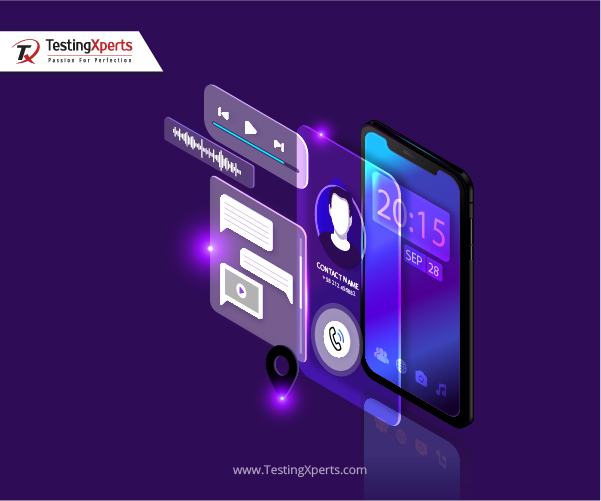4 key challenges of mobile app testing
Testing is a fast-paced industry that is constantly
changing. The movement towards mobile devices has brought a whole different set
of challenges to the mobile testing
world. Not only have consumer targeted apps set the trend, but enterprise apps
have also made the move to mobile. Mobile users are not forgiving and finding
an issue out in the wild might mean leaving the application for good.
Screen sizes.
The Android world is not easy. The wide variety of different
element ratios and pixel densities may be overpowering. With the introduction
of iPhone 6, Apple provides new display sizes to the i-OS world also.
Though
i-OS programmers are utilized to pixel flawless screen layout, they need to
alter their mentality into the elastic screen design and style rather than For
analyzing it usually means that individuals need to inspect up on several
different devices that the necessary screen things can be found with different
screen sizes and element ratios.
Link forms.
You can find plenty of standards for mobile data relations
(advantage, UMTS, 3G, 4G) as well as for wi-fi (b, g, n). Some times there
might not be any connection offered at the device is in flight mode. If users
move the bond type could change.
Unfortunately some carriers filter the web on their will,
which causes the apparatus being connected without actually having relation
having a particular services (calling or texting through apps).
Although connection
API's on cell platforms have been created keeping people challenges at heart,
the real-world environment is still quite much diverse and interesting set of
issues might occur. It's important to test the bandwidth use since not many
carriers are now encouraging unlimited data amounts.
Distinct OS versions.
IOS users have been known to function as updating quickly
into the new variants (iOS 8.0 uptake has been approximately 50% during first
two months ). On the contrary, Android uptake has been very slow and also the
fragmentation has been now wide. It follows that app developers want to support
older OS variants and older APIs, and testers want to test such as those.
Strength consumption and battery lifetime. The innovation
at the battery capacity field hasn't been as quick as at the program
consumption. We're conducting lots of apps daily and lots of processes
are managing in desktop without us even noticing.
This requires CPU cycles that
about its turn necessitate power and therefore the batteries tend to dry. When
analyzing mobile programs we need to ensure that the power consumption is kept
minimal and the app is currently made by keeping the best practices at heart.
Usability.
Cell device displays are relatively tiny and there is
always more data we'd like to show than the potential to match the screen. It
really is challenging to hold the discussion clean and simple for an
individual, and also at an identical time frame display all the needed info.
Font size and readability are additional troublesome facets of usability. When
analyzing mobile apps it's important to focus on the dimensions of just click
regions and ensuring that all texts are all readable without the lenses.
Most of the programs are designed to be employed in global
markets. Assessing for translation is simply one part of the whole
internationalization testing. Testers should also take into consideration
regional faculties (geographical preferences, time-zones ) and audience.
Shifting time while the app is running can cause a few intriguing artifacts.
Likewise, some designs that are working in the western earth may not operate at
the east and west vice-versa. Right-to-left languages have always kept
programmers puzzled.
With all our community of skilled testers and tailored
tools, Testingxperts really helps
overcome those struggles. During network we've usage of the enormous pool of
different devices and customers could let their apps have to be analyzed
exactly on the given apparatus. With automation scripts, we can check out the
main workflows on various emulated devices.

Comments
Post a Comment